The Witcher: Blood Origin: release date, trailer, cast, and more
The Witcher: Blood Origin arrives on December 25
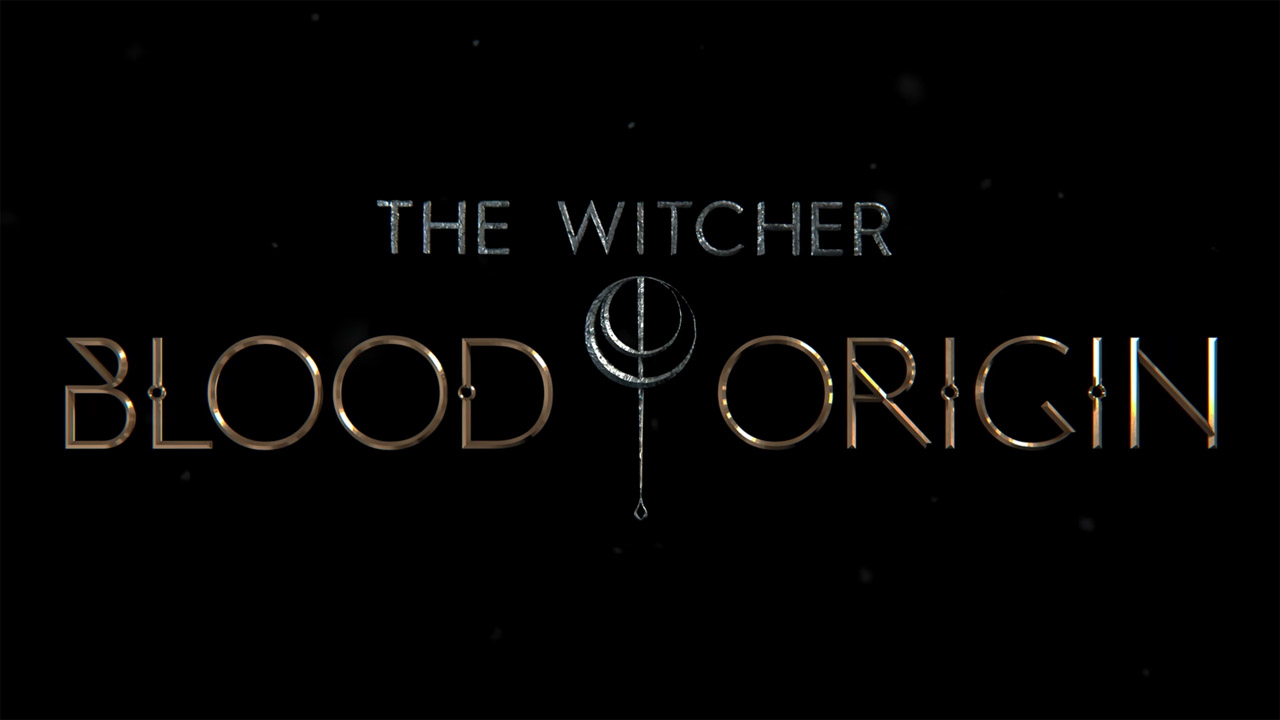
- Arrives on Netflix on December 25
- Serves as a prequel to The Witcher TV show
- Set 1200 years before the main series
- Michelle Yeoh, Sophia Brown, and Laurence O’Fuarain among its sizable cast
- Charts the creation of the first witcher
- Covers the cataclysmic event known as the Conjunction of the Spheres
- Comprises four episodes
The Witcher: Blood Origin is almost here. The next major entry in Netflix's Witcher-Verse launches on December 25 (that's Christmas Day for those who celebrate it), meaning we'll have some new Witcher TV content to stream over the festive period.
With the fantasy show's release upon us, you'll be wanting to learn more about it before you watch the four-part series. Your first point of call should be our review of The Witcher: Blood Origin, before following that up with our exclusive chat with the cast and crew on how Netflix has reshaped The Witcher series' mysterious past.
All done with those two? Grand, there's even more information for you to check out in our hub on The Witcher: Blood Origin. Below, we've compiled everything worth knowing about the Netflix show, including its cast, plot details, trailers, how it impacts The Witcher season 3, and more.
Potential spoilers for The Witcher: Blood Origin follow. We also cover some spoilers from Andrzej Sapkowski's Witcher novels, too. If you're avoiding anything of that ilk, use the navigation bar on the left of this page to skip past our plot and cast sections, where some possibly big spoilers are located.
The Witcher: Blood Origin release date
Worlds will collide. The Witcher: Blood Origin is coming to Netflix on December 25. #TUDUM pic.twitter.com/jSDDf7lzdASeptember 24, 2022
The Witcher: Blood Origin launches on Sunday, December 25.
Per showrunner Declan de Barra (via Netflix's in-house Tudum website), the miniseries is made up of four episodes, rather than the previously reported six – something de Barra compares to a "two-part movie". Speaking to Polish news outlet Naekranie, The Witcher showrunner Lauren Hissrich revealed why some content was cut. In short? Hissrich, de Barra, and company wanted the miniseries to be "faster and snappier" from a story perspective.
Lastly, The Witcher spin-off also has an hard R-rating (that's 18 plus in the UK) due to graphic violence, strong language, and nudity.
Get daily insight, inspiration and deals in your inbox
Sign up for breaking news, reviews, opinion, top tech deals, and more.
The Witcher: Blood Origin trailer
The Witcher: Blood Origin's official trailer was released online following its debut at Brazil Comic-Con on December 3.
The teaser, which you can view above, surprisingly contains some potentially big story spoilers. If you're avoiding them pre-release, we'd advise you not to watch it.
Whether you watch the official trailer or not, there are other videos to stream. First up is Blood Origin's second teaser trailer, which arrived on November 10:
The third and final teaser, i.e. the one released in December 2021, offers some additional context about the series, plus some footage not shown in the other trailers:
The Witcher: Blood Origin cast
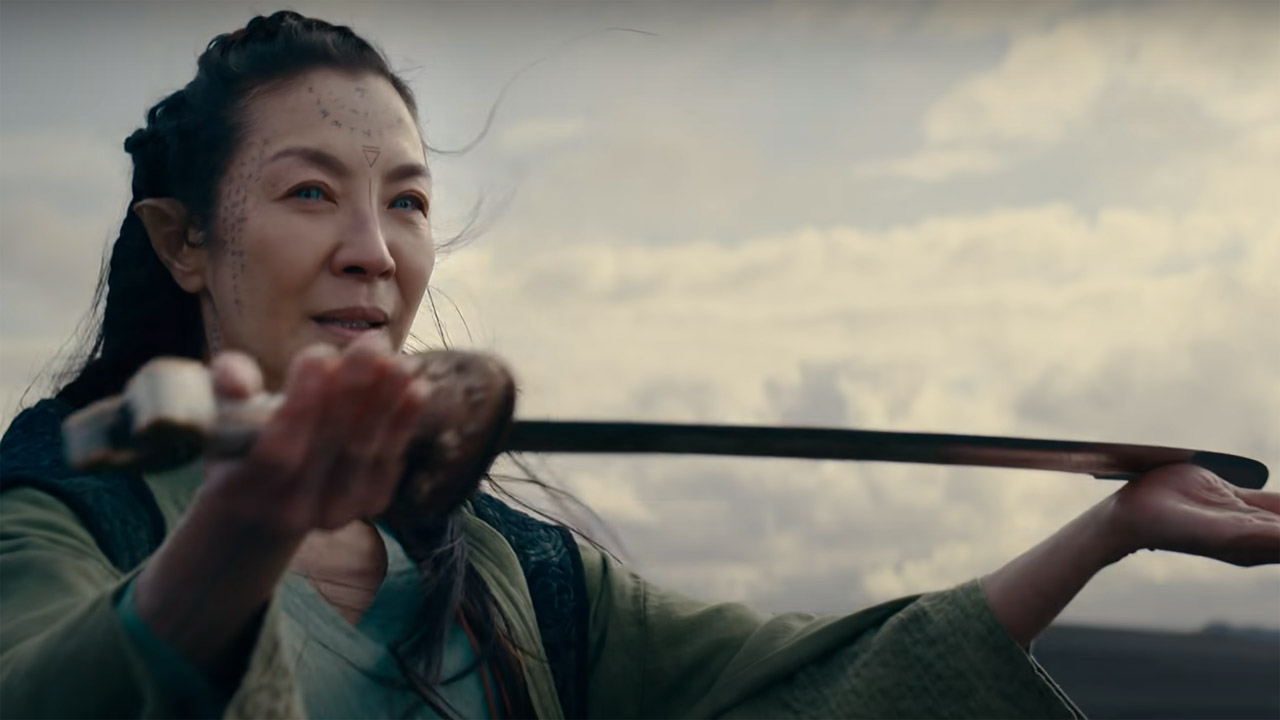
The Witcher: Blood Origin cast comprises 15 characters:
- Michelle Yeoh as Scían
- Sophia Brown as Éile
- Laurence O’Fuarain as Fjall
- Lenny Henry as Chief Sage Balor
- Mirren Mack as Merwyn
- Jacob Collins-Levy as Eredin
- Lizzie Annis as Zacaré
- Zach Wyatt as Syndril
- Huw Novelli as Callan "Brother Death"
- Francesca Mills as Meldof
- Amy Murray as Fenrik
- Nathaniel Curtis as Brían
- Dylan Moran as Uthrok One-Nut
- Aidan O'Callaghan as Kareg
- Minnie Driver as Seanchaí
Yeoh is the biggest name attached to the project, but Brown's Éile is the series' protagonist. Per Entertainment Weekly (EW), Éile is a warrior of the Queen's guard who leaves her post to become a traveling musician. In a separate EW article, Éile is revealed to be the daughter of the Raven Clan's Chieftain, who is trained from birth to become a formidable warrior before she turns her back on fighting. Judging by the footage we've seen, however, Éile will be roped back into the life she left behind.
As for Yeoh (Star Trek: Discovery, Shang-Chi), her character Scían hails from the Ghost Clan and is the swords master who trained Éile. She's described (per Deadline) as "the very last of her nomadic tribe of sword-elves. No one can come close to her artistry with the blade, and no one carries as much loss within their heart. When a chance presents itself to retrieve a stolen sacred sword, taken from her fallen tribe by nefarious means, she launches herself into a deadly quest that will change the outcome of the Continent."
O'Fuarain (Vikings, Game of Thrones) will portray Fjall, a Dog Clan member described by Variety as being "born into a clan of warriors sworn to protect a king, Fjall carries a deep scar within, the death of a loved one who fell in battle trying to save him. A scar that won’t let him settle, or make peace with himself or the world around him. In his quest for redemption, Fjall will find himself fighting beside the most unlikely of allies as he carves a path of vengeance across a continent in turmoil."
A lot has happened in 1200 years. Here's where The Witcher: Blood Origin sits in the wider timeline... pic.twitter.com/Voz7gHd1FtDecember 11, 2022
De Barra previously indicated that the creative team wanted to "put together a team of disparate people to fight for what they believe in. If they weren’t bound by the same desire for revenge and justice, would be on the same team. Because they’re like oil and water, they’ve all got beef with each other."
Moving onto the Conjunction of the Spheres: in Sapkowski's novels, this cataclysmic, multiversal event caused every world and reality to collide, leading to a situation where humans, elves, and monsters all exist in the same dimension.
The Conjunction of the Spheres' effects last hundreds of years in this universe. It's not only responsible for the rich and diverse make-up of the world, but also the danger, chaos, and uncertainty that prevails throughout it. So important is the Conjunction to the entire world of The Witcher, it harbors enormous potential for storytelling and framing the entire universe.
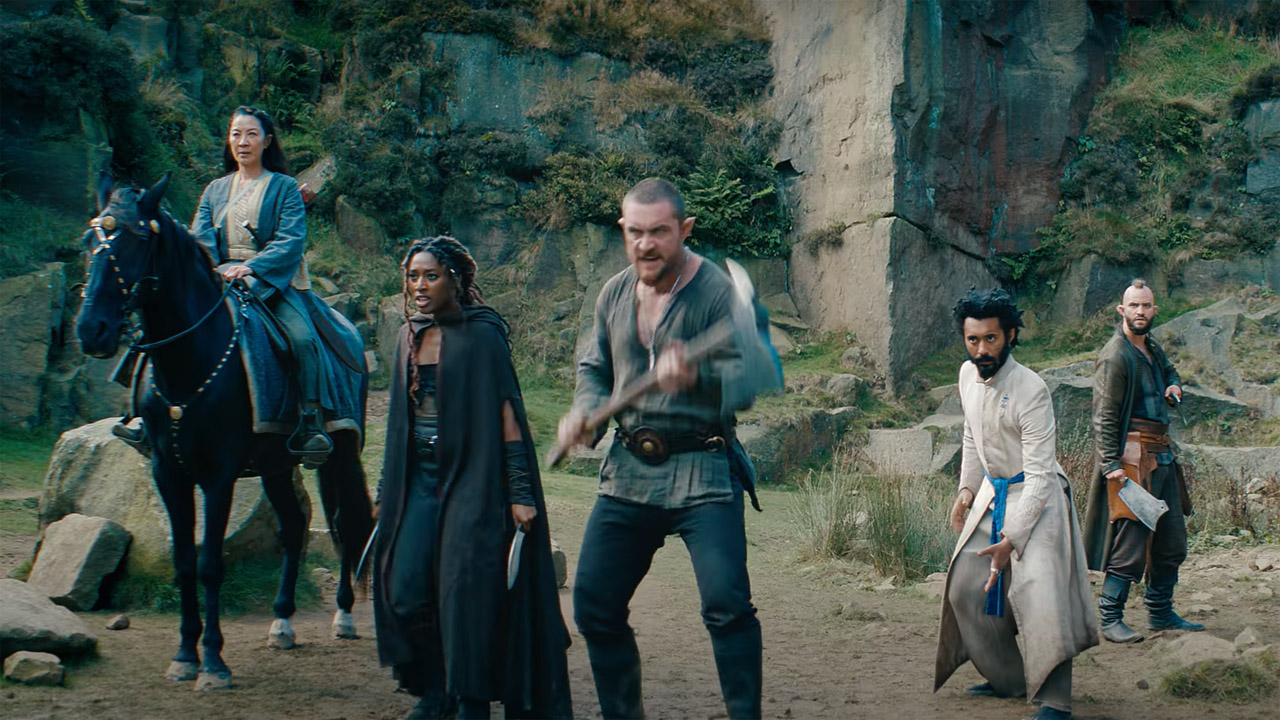
Given what subsequently plays out, we suspect that the series' main characters will need to band together when their missions align. Naturally, they could be thrown together by circumstance but, given The Witcher franchise's penchant for fate as a theme, we think it'll be something bigger than these characters solely meeting by chance.
But they aren't the only characters in Blood Origin. The most recent cast announcement concerns Minnie Driver (Good Will Hunting, Speechless), who has been cast as Seanchaí, a shapeshifting storyteller with the ability to traverse time and different realms who collects historical lore from each place she visits. Driver also narrates the miniseries.
On the first day of Witchmas 🎶 We're gifting you this spoiler-free guide to get you up to speed on the elven Golden Era before you watch Blood Origin. Enjoy! 🎁 pic.twitter.com/62PQ4bZ2oEDecember 19, 2022
Interestingly, Jacob Collins-Levy (The White Princess) has been cast as Eredin, an elven cavalry commander who led the Wild Hunt. With The Witcher season 2 finally introducing the Wild Hunt to audiences, it'll be intriguing to see what elements of Eredin's backstory (if any) are included.
There are plenty of original characters set to debut, too. Lenny Henry (Doctor Who, The Rings of Power) will appear as Chief Sage Balor, a "product of class in society" who uses his talents to become the current king's advisor. Mirren Mack (The Nest, Sex Education) plays Princess Merwyn, who grows up in a patriarchial monarchy but someone de Barra describes as "having a fire in her".
Zach Wyatt (Karen Pirie) will portray Syndril, while Lizzie Annis (Night Growler) is Zacaré. These characters are referred to as celestial twins, individuals born to different mothers but who came into the world when the same meteor appeared in the sky. Their fates, then, might be more magically intertwined than we think.
Other supporting cast members include Dylan Moran (Black Books) as Uthrok One-Nut, Nathaniel Curtis (It's a Sin) as Brían, and Huw Novelli (The Snow Spider) as Callan, who is also known as Brother Death. Francesca Mills (Harlots) will play Meldorf, Amy Murray (in her first major acting role) has been cast as Fenrik, and Aidan O'Callaghan (The Rook) will play Kareg.
The Witcher: Blood Origin story
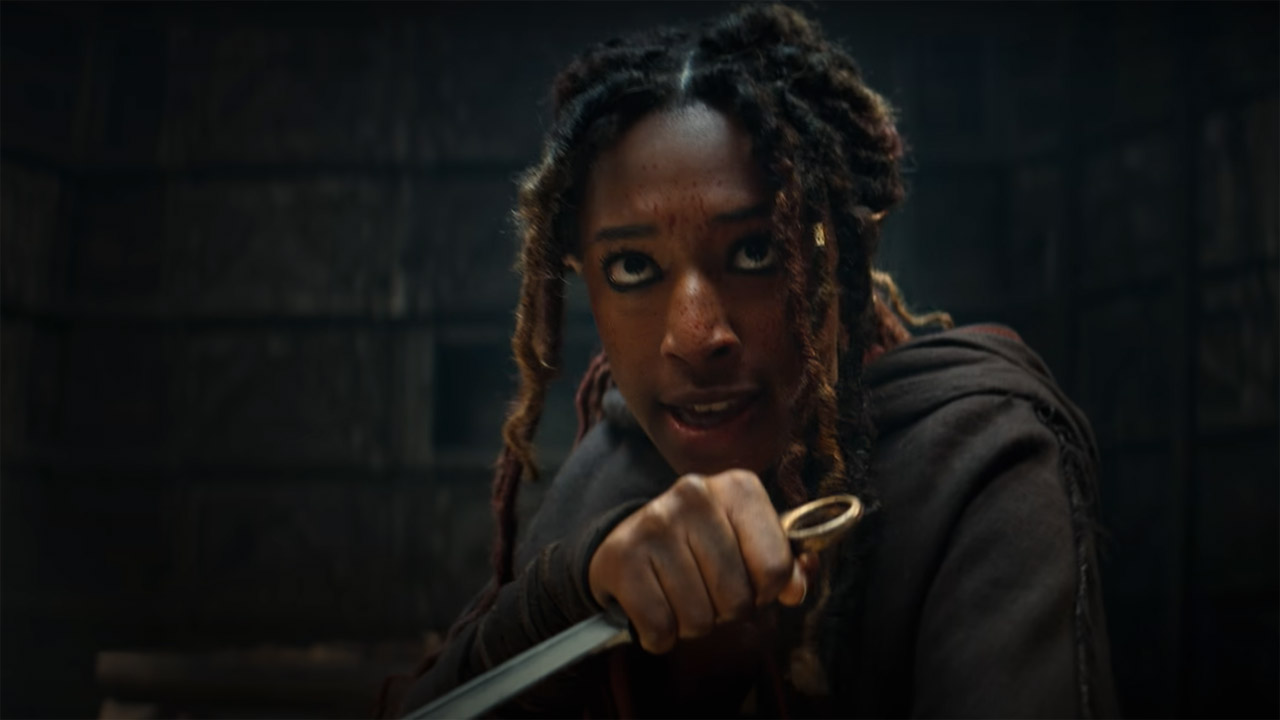
Here's Netflix's official synopsis for the show: "Set in an elven world 1200 years before the world of The Witcher, Blood Origin will tell a story lost to time – the origin of the very first Witcher, and the events that lead to the pivotal Conjunction of the Spheres, when the worlds of monsters, men, and elves merged to become one."
According to de Barra, who sketched the series' whole idea down on a napkin in November 2019 (per EW), The Witcher: Blood Origin will place an emphasis on the ancient Elven society, tensions between races, and other issues caused by the Conjunction.
"Viewers will be surprised because they’re going to see a story told about a period of elven history that was buried by the humans after their arrival and eventual conquest of the continent," de Barra also told Tudum. "We get to tell a tale about the elves when they were at their height, like all great societies before their fall."
We'll also see the origins of the witchers, aka humans who have undergone rigorous training and magical experimentation to turn them into vicious monster hunters. Geralt and Vesemir are the most famous ones, but we should get a glimpse of who becomes the prototype witcher in the show.
"The first official witcher didn’t happen until way after the arrival of the humans, with the creation of various witcher schools," de Barra noted. "But the actual initial mechanics for that witcher, and the Trial of the Grasses, that was open [to explore], it’s like, 'How did that come about?'. That’s what we delve into.
"What is the prototype of the witcher? Say, Geralt is version 13.0, the upgrade, ours is the 1.0, rough and ready – the concept of a witcher. It’s the [original] model. What was the story there? How did that get lost? And who found that critical element later?"
⚔️10 THINGS TO KNOW ABOUT THE WITCHER: BLOOD ORIGIN ⚔️In case you missed our recent updates from the Continent… pic.twitter.com/IW4ZpmiWc2September 30, 2022
According to Hissrich, the creation of the first witcher is pivotal due to the Conjunction of the Spheres, telling Digital Spy: "When we're coming up with spin-off ideas, or how we want to extend this universe, I always go back to the books, and try to find things that are either hinted at, or mentioned, or that we don't have the time to explore in the main series, or that Sapkowski didn’t explore fully in the books.
"The Conjunction of the Spheres is one of those things. And I just wanted to understand: What was the world before the Conjunction? How did it change? Because all of these spheres came together. And how did that begin to set up our world now?"
Those aren't the only element that the series will focus on. After all, based on the appearances and backstories of the show's leading trio, the Continent's elven civilization are the dominant species before the Conjunction occurs.
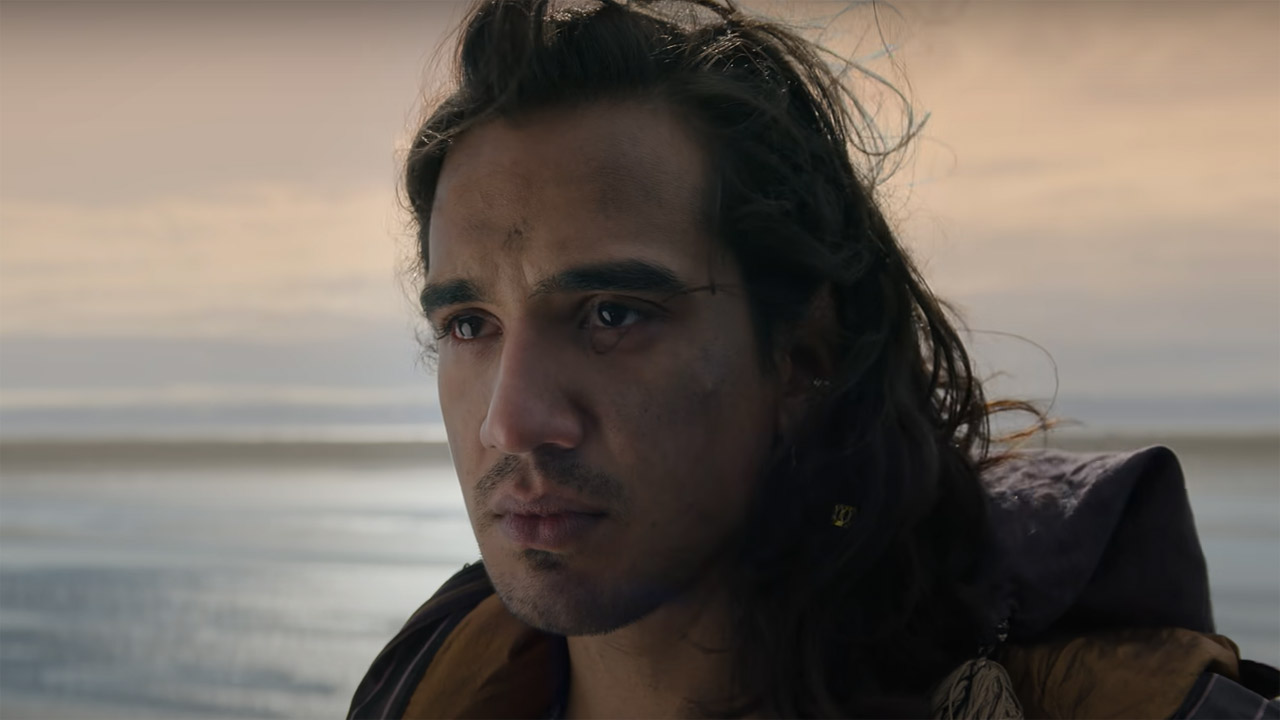
For de Barra, the elves' pre-colonized world was something the creative team wanted to explore, telling EW: "I just was fascinated with the idea of what a pre-colonized world would look like for the elves. When you look at our own history, societies that had been at their height, like the Roman Empire or the Mayan Empire, that'd be right before the fall and then we're in dark ages again. That fascinated me to wonder what that world could have been: what society would have been like and what elves wanted. That's what we're going to explore here."
Elaborating further on why a pre-colonized world seemed like the right fit for Blood Origin, de Barra added (per EW): "It [the world before the Conjunction] is very vague in the books as to what happened. I got out a whiteboard and sketched out this plan of what I thought: what elves wanted in this world and what the society was like pre-colonization. That kind of stuck."
The Witcher: Blood Origin could also explore the origins of Princess Cirilla's bloodline and powers, which we've seen in The Witcher seasons 1 and 2.
Blood Origin may be a nod to Elder Blood, aka the bloodline that Ciri belongs to, and that distinguishes her as special and powerful – dangerously so. The Elder Blood began with elven mages and was originally meant to be kept solely within this race. This did not occur as one prominent carrier strayed from the elven line to begin a relationship with a human. Given this relates to such an important, and now established character in Ciri, it'll be interesting to see if The Witcher: Blood Origin shows us how the bloodline began.
Prepare for the birth of a new Continent. THE WITCHER: BLOOD ORIGIN premieres December 25. pic.twitter.com/yOFYbW63PGDecember 3, 2022
Additionally, the Elven/human mixing of the Elder bloodline happened after the Conjunction of the Spheres. The witcher order came well after the Conjunction, so there's plenty of leaps that will need to be made to compress it all down.
Blood Origin's narrative will also thematically explore real world issues, including class divide and racism. "There was massive social stratification," de Barra told EW. "There's highborn and lowborn, and you shall not pass from one to the other. That's their form of racism, and specie-ism in terms of how the dwarves are treated. It's not a perfect society at all."
As for those magic-imbued monoliths viewers were introduced to in The Witcher season 2, de Barra adds: "We learn the origin of the monoliths here, and then we understand how they became so important in the world of The Witcher later and the power that was bestowed upon them and how that came about. They’re the catalyst for a lot of what goes wrong in this world."
Regardless of Blood Origin's actual story, the show will "surprise" fans of The Witcher TV series and fans of the books, according to Hissrich. Speaking exclusively to TechRadar in December 2021, Hissrich suggested Blood Origin will "surprise viewers in how it looks", with the Continent's "more modern" aesthetic making it appear futuristic compared to what we've previously seen.
Speaking to Tudum, de Barra also teased that Blood Origin will directly impact future seasons of the main Witcher TV show. "Blood Origin sets up certain core characters and fan favorites from the books in the later Witcher series," he said. "There are items and discoveries that are made in this world that play off in later seasons of The Witcher and have critical effects on the storyline. Lauren Schmidt, the producers, and I spent a lot of time seeding new Easter eggs and answering older Easter eggs from other episodes and series."
Will The Witcher: Blood Origin get a second season?
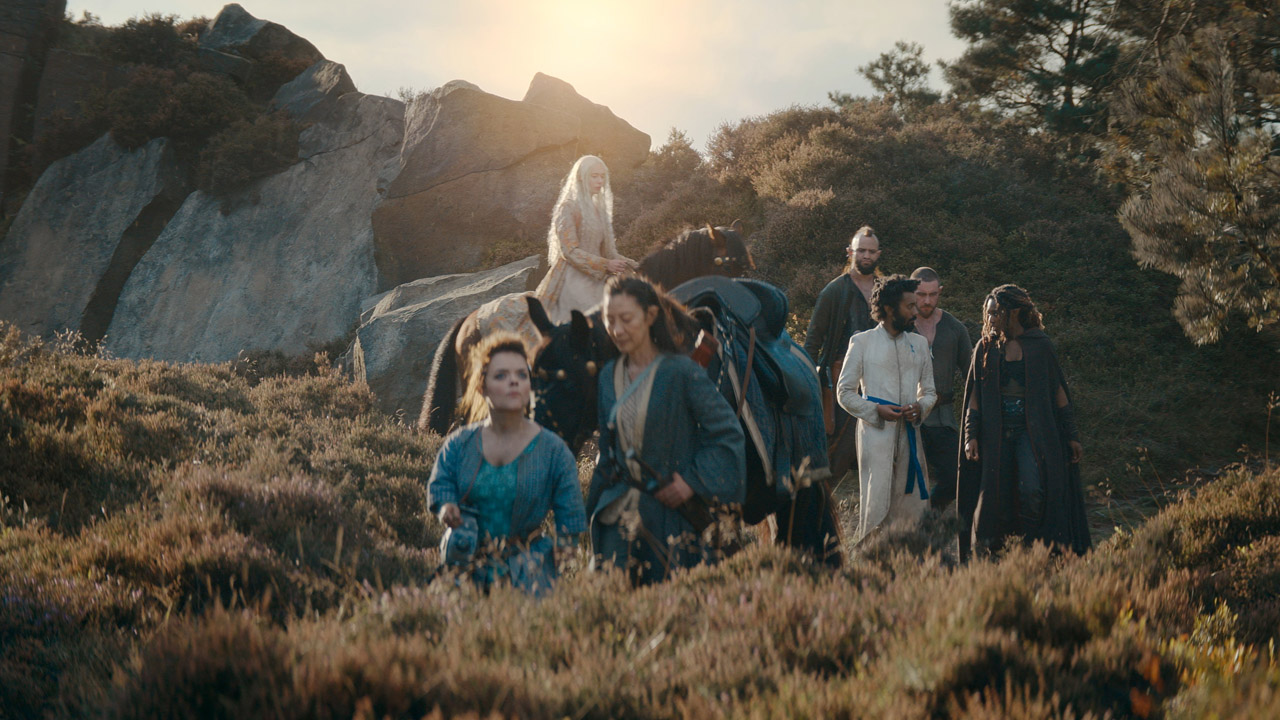
The Witcher: Blood Origin is being billed as a limited series, which fleshes out the live-action universe's world and allows fans to go deeper into it outside of Sapkowski's novels. De Barra, though, has suggested that a second season could be possible if the show is successful, telling EW that it's "up to the fans" if more is made.
If a second season of The Witcher: Blood Origin's story doesn't materialize, there's plenty of Witcher content coming to Netflix in the future. That includes The Witcher season 3, which arrives mid-2023, as well as another animated movie and a child-friendly spin-off show.
Even if it's one and done for Blood Origin, the spin-off will affect the story playing out in The Witcher season 3 and its follow-ups. To say anymore would be to spoil the surprise. However, Minnie Driver exclusively told TechRadar she'd love Seanchaí to cross paths with Geralt at some point. You and us both, Minnie.
That's more than enough Witcher projects for the franchise's creative team to be busy with for now but, clearly, The Witcher: Blood Origin's future will depend on whether audiences want to see more of this version of the world before the Conjunction truly takes effect.
For more Witcher-based content, find out how to read The Witcher books in order.
Richard is a freelance journalist specialising in movies and TV, primarily of the sci-fi and fantasy variety. An early encounter with a certain galaxy far, far away started a lifelong love affair with outer space, and these days Richard's happiest geeking out about Star Wars, Star Trek, Marvel and other long-running pop culture franchises. In a previous life he was editor of legendary sci-fi and fantasy magazine SFX, where he got to interview many of the biggest names in the business – though he'll always have a soft spot for Jeff Goldblum who (somewhat bizarrely) thought Richard's name was Winter.
